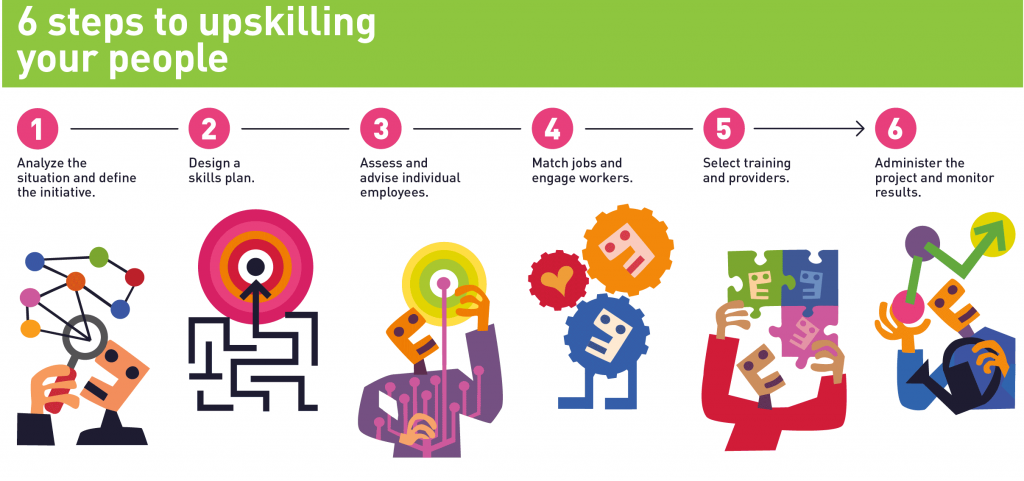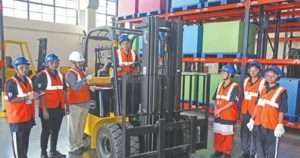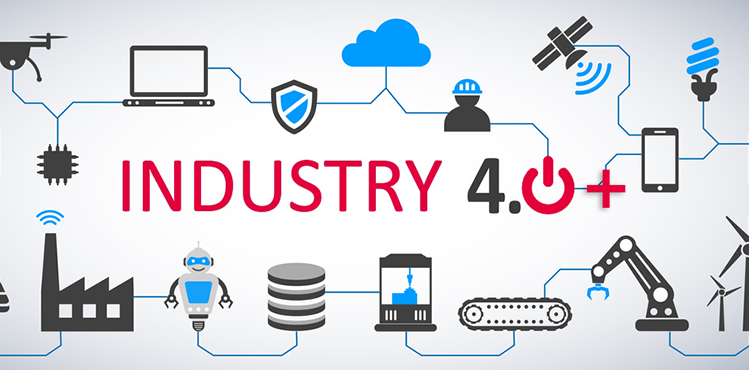

The bridge between skill development and employability is the practical guidance that corporations have to offer.
India is poised to be one of the nations with the youngest population this year, where most people will be of working age and able to contribute to the economic progress of the country. However, this also brings to attention the obstacles posing a threat to such growth. One such obstacle is the ideal avenues for employment. Even after years of formal education, students do not find suitable jobs, and a substantial number find themselves underemployed.
 These concerns, especially for youth from marginalised and underprivileged communities, begin quite early. They face the hurdle of access to quality secondary education, which in a way, is the first step to gainful employment. The hurdle is to find employment in their region, as employment opportunities, though increasing, are not spread evenly across the country.
These concerns, especially for youth from marginalised and underprivileged communities, begin quite early. They face the hurdle of access to quality secondary education, which in a way, is the first step to gainful employment. The hurdle is to find employment in their region, as employment opportunities, though increasing, are not spread evenly across the country.
With rapidly transforming technology and increasing adoption of digital solutions across industries and sectoral skills, it is imperative that constant upskilling takes place. Educational institutions must constantly keep abreast of the evolving curricula, technology, and changing job requirements. Due to their reach in remote areas and mobilisation capabilities, educational and vocational institutes are critical to the success of any skill development programme.
 These issues are further aggravated by the constantly evolving landscape concerning job requirements. With rapidly transforming technology and increasing adoption of digital solutions across industries and sectoral skills, it is imperative that constant upskilling takes place. Educational institutions must constantly keep abreast of the evolving curricula, technology, and changing job requirements. Due to their reach in remote areas and mobilisation capabilities, educational and vocational institutes are critical to the success of any skill development programme. Therefore, a framework where academic and skill development institutions are strengthened with a knowledge-sharing approach with the industry partners is necessary to ensure that the best and the most updated curriculum and practices can be followed for the benefit of the students.
These issues are further aggravated by the constantly evolving landscape concerning job requirements. With rapidly transforming technology and increasing adoption of digital solutions across industries and sectoral skills, it is imperative that constant upskilling takes place. Educational institutions must constantly keep abreast of the evolving curricula, technology, and changing job requirements. Due to their reach in remote areas and mobilisation capabilities, educational and vocational institutes are critical to the success of any skill development programme. Therefore, a framework where academic and skill development institutions are strengthened with a knowledge-sharing approach with the industry partners is necessary to ensure that the best and the most updated curriculum and practices can be followed for the benefit of the students.
Role of Corporations in Upskilling
Corporations today are not just job providers but are consumers, adopters, and many cases also creators/initiators of new technology. Being in these roles, companies tend to be more in tune with the evolving landscape in terms of technology and job roles. Therefore, they can contribute immensely to bringing new perspectives, making skill development curricula more relevant, help students leverage their technical capabilities, among others.

Further, corporations stand to play a major role in ensuring that such initiatives are spread evenly across regions and demographics. In the skilling of women especially, corporations can play a role in integrating women into jobs that are considered non-conventional for them, help break stereotypes provide more opportunities and thereby increase the avenues for their employment.
 For example, Godrej & Boyce’s DISHA, a youth-oriented and employability focused corporate social responsibility project which was initiated in 2011, provide industry-relevant skills to the marginalised youth of the country. Operating in 80 towns in 18 Indian states, it has trained 1.59 lakh youths. Collaborations
For example, Godrej & Boyce’s DISHA, a youth-oriented and employability focused corporate social responsibility project which was initiated in 2011, provide industry-relevant skills to the marginalised youth of the country. Operating in 80 towns in 18 Indian states, it has trained 1.59 lakh youths. Collaborations  with Government Industrial Training Institutes and Vocational Training Institutes ensures that a variety of skilling courses are covered. The major areas of skill development DISHA is involved in is related to sales and services trades, interior trades, construction, and manufacturing and includes skills like
with Government Industrial Training Institutes and Vocational Training Institutes ensures that a variety of skilling courses are covered. The major areas of skill development DISHA is involved in is related to sales and services trades, interior trades, construction, and manufacturing and includes skills like  refrigeration and air conditioning, retail sales services, carpentry, solar technician trades, locks technician, masonry, false ceiling, plumbing and many more. One such example of the project is training women in driving forklifts – an area where the presence of women is largely unconventional.
refrigeration and air conditioning, retail sales services, carpentry, solar technician trades, locks technician, masonry, false ceiling, plumbing and many more. One such example of the project is training women in driving forklifts – an area where the presence of women is largely unconventional.
Based on how technology and processes are evolving, it will be of paramount importance to constantly think ahead of the curve and anticipate what is it that young people will need to carve a niche for themselves in these evolving workspaces. As adopters and consumers of technology, and being at the forefront of shaping progress in products and services, industries hold the unique position of defining what skill development should entail.
Collaborations need to be encouraged to leverage the existing infrastructure of training institutes and on-boarding partners with diverse expertise in skill development to eliminate the need for parallel infrastructure and ensure coverage of remote regions. Further, dovetailing a corporation’s business requirements to the skill ecosystem can bring forth informed decisions to each aspect of training and lead to better industry-ready individuals. Few tried and tested avenues for industry-academia partnership, apart from funding, are building trainer capacity, upgrade of training equipment, knowledge sharing, curriculum development, industry exposure visits or short-term internships.
 The industry is in the midst of a revolution or industry 4.0, as many people know it. This is a stark shift, especially concerning the manufacturing and services sector, towards using artificial intelligence, the internet of things, robotics, and automation in their processes. The skills which were in demand until a few years earlier might be rendered obsolete – particularly where jobs did not require advanced skills, to begin with. On the other hand, as the boundary between the physical and digital blurs further, there will be fresh opportunities created for job seekers and youth.
The industry is in the midst of a revolution or industry 4.0, as many people know it. This is a stark shift, especially concerning the manufacturing and services sector, towards using artificial intelligence, the internet of things, robotics, and automation in their processes. The skills which were in demand until a few years earlier might be rendered obsolete – particularly where jobs did not require advanced skills, to begin with. On the other hand, as the boundary between the physical and digital blurs further, there will be fresh opportunities created for job seekers and youth.
The workplace, in the near future, will not look the same as it is today. Therefore, based on how technology and processes are evolving, it will be of paramount importance to constantly think ahead of the curve and anticipate what is it that young people will need to carve a niche for themselves in these evolving workspaces. As adopters and consumers of technology, and being at the forefront of shaping progress in products and services, industries hold the unique position of defining what skill development should entail. As valuable digital skills are at this point, and considering how institutions are constantly incorporating training on the latest skills, guidance and involvement of the industrial sector will lead to the development and adoption of skills that will hold their relevance even as job functions and requirements keep changing.
 Corporations are well placed to initiate public-private partnerships and bring together the expertise of a collaborative to their initiatives – following a similar approach for skill development initiatives can ensure that the benefits of access to a diverse pool of resources can be leveraged by the trainees making them better prepared for their careers and setting them on a path to growth and socio-economic enhancement.
Corporations are well placed to initiate public-private partnerships and bring together the expertise of a collaborative to their initiatives – following a similar approach for skill development initiatives can ensure that the benefits of access to a diverse pool of resources can be leveraged by the trainees making them better prepared for their careers and setting them on a path to growth and socio-economic enhancement.

